What exactly would banning the app entail, and what would be the timeline for something like that to take effect?
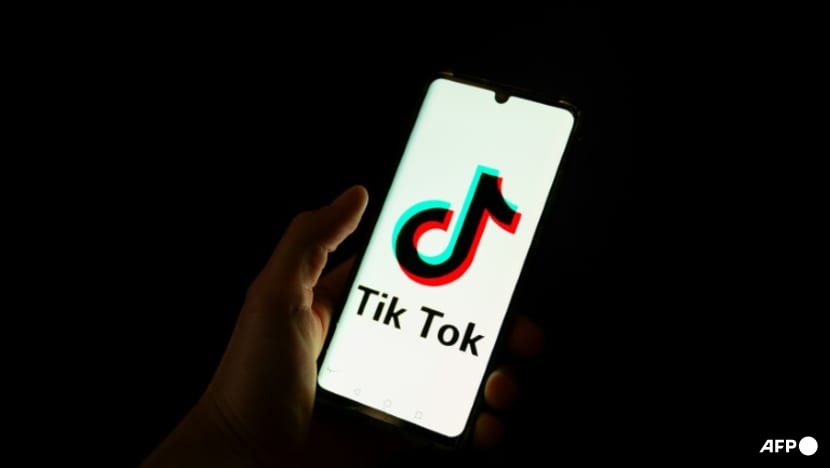
TikTok says a ban on the app would violate freedom of expression. (Photo: AFP/Antonin UTZ)
New: You can now listen to articles.

Sorry, the audio is unavailable right now. Please try again later.
This audio is AI-generated.
SINGAPORE: TikTok is now the closest it's ever been to being actually banned in the United States.
A Bill mandating its separation from its Chinese parent company ByteDance was approved by the US Senate this week. President Joe Biden signed it into law shortly after.
If ByteDance doesn't sell TikTok within a year, the app will be banned in the US.
Critics have long alleged that TikTok is controlled by China's government and that Beijing uses the app to collect user data and spread propaganda. Both country and company have strongly denied such claims.
What does a ban mean?
In short, TikTok would be removed from Apple and Google app stores in the US.
Existing users would be able to keep using TikTok on their phones, but they'd miss out on updates and bug fixes.
North America accounts for about 15 per cent (192 million) of TikTok's total user base, and a ban would have a "profound" impact on Bytedance, said Associate Professor Brian Lee, head of Singapore University of Social Sciences’ (SUSS) communication programme.
He told CNA on Thursday (Apr 25) that a “domino effect” could follow with other countries, particularly those allied with the US, possibly considering a similar ban.
And a ban could take a toll on already fraught US-China relations, experts said.
It could reinforce perceptions that the US regards China’s technological rise as incongruent with American fundamental interests and its goal to be a leader in the global digital order, said Mr Muhammad Faizal Abdul Rahman at the S. Rajaratnam School of International Studies think-tank.
With the TikTok Bill part of a package including US military aid to Ukraine, Israel and Taiwan, the optics of it could also prompt China to portray a ban as another step in America's "hybrid warfare toolkit”, he added.
Would a ban really mean the end of TikTok in the US?
Users can likely find workarounds to access TikTok, said Assoc Prof Lee of SUSS.
For instance, users can mask their location using a virtual private network (VPN), though this could violate TikTok’s terms of service.
Users can also bypass the ban by installing a foreign SIM card in their phones, or by using alternative app stores.
TikTok is also blocked in Iran, Nepal, Afghanistan, Somalia and most prominently India.
New Delhi banned the app nearly four years ago, shutting out about 200 million users - the most outside China at the time.
The government cited privacy concerns and said Chinese apps threatened India’s sovereignty and security.
Based on the Indian experience, a ban would be disruptive at the beginning, but users would likely move to other platforms over the next few years, said RSIS' Mr Faizal, who studies geopolitical competition and digital technologies.
Yet the context is different: There was stronger support for a TikTok ban in India, which has been embroiled in a long-running territorial dispute with China at their border.
“Not everyone in the US agrees with their government that TikTok is a security threat,” Mr Faizal added.
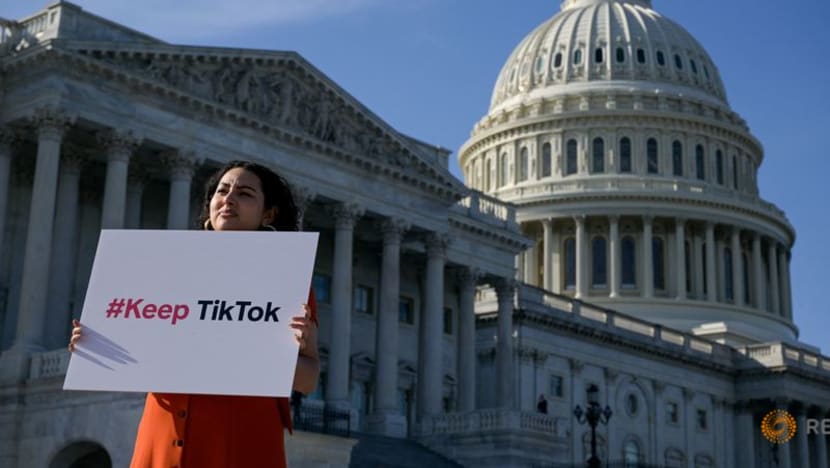 Giovanna Gonzalez of Chicago demonstrates outside the US Capitol following a press conference by TikTok creators to voice their opposition to the “Protecting Americans from Foreign Adversary Controlled Applications Act", pending crackdown legislation on TikTok in the House of Representatives, on Capitol Hill in Washington, US, Mar 12, 2024. (File photo: REUTERS/Craig Hudson)
Giovanna Gonzalez of Chicago demonstrates outside the US Capitol following a press conference by TikTok creators to voice their opposition to the “Protecting Americans from Foreign Adversary Controlled Applications Act", pending crackdown legislation on TikTok in the House of Representatives, on Capitol Hill in Washington, US, Mar 12, 2024. (File photo: REUTERS/Craig Hudson)
Who would be most affected?
A ban will likely result in continued protests from TikTok users and content creators in the US whose livelihoods will be affected, said Assoc Prof Lee.
Some of them run businesses on the platform, making money from the TikTok Shop feature.
If the app ends up banned in the US, a glut of similar-looking short-form video platforms will attempt to fill the gap. Instagram Reels, YouTube Shorts and Triller are some of these.
Other tech giants Google, Meta and X will also surely look to benefit somehow, said Mr Faizal.
Why not sell the app?
Former US Treasury Secretary Steven Mnuchin told CNBC in March that he was building an investor group to acquire TikTok.
The Wall Street Journal also reported that former Activision Blizzard CEO Bobby Kotick was looking for potential partners for a purchase.
But ByteDance is unlikely to agree to a sale.
China itself may not accept TikTok divesting from ByteDance, as it views a ban as a hostile act by the US government colluding with American media and business circles, Mr Faizal said.
A divestment will also challenge Chinese export law that classifies TikTok’s algorithm as “sensitive technology that shouldn’t be sold to foreign entities”.
“China may feel the need to respond with its own sanctions against US companies," he added.
"But whether these would be more bark than bite remains to be seen."
When would a ban take effect?
ByteDance has nine months to sell TikTok, with a possible three-month extension if a sale is underway.
The deadline comes after the winner of the 2024 US presidential election takes office.
Republican candidate Donald Trump, who previously sought to ban TikTok when he was president, has criticised the legislation.
But Mr Alex Capri, a research fellow at the Hinrich Foundation and senior lecturer at the National University of Singapore's Business School, believes TikTok's fate in the US won't come down to who's elected the next president.
TikTok's CEO Chew Shou Zi has already vowed to take the fight to the courts.
Legal action would effectively put any ban on hold - so it could take years for this to play out.
“The US courts will eventually decide whether to uphold or overrule a ban on TikTok, based on the First Amendment to the US Constitution, and a citizen's right to free speech,” Mr Capri said, adding that the case could go all the way to the Supreme Court.
“If a court strikes down the ban, TikTok isn't going anywhere."
Want an issue or topic explained? Email us at digitalnews [at] mediacorp.com.sg. Your question might become a story on our site.



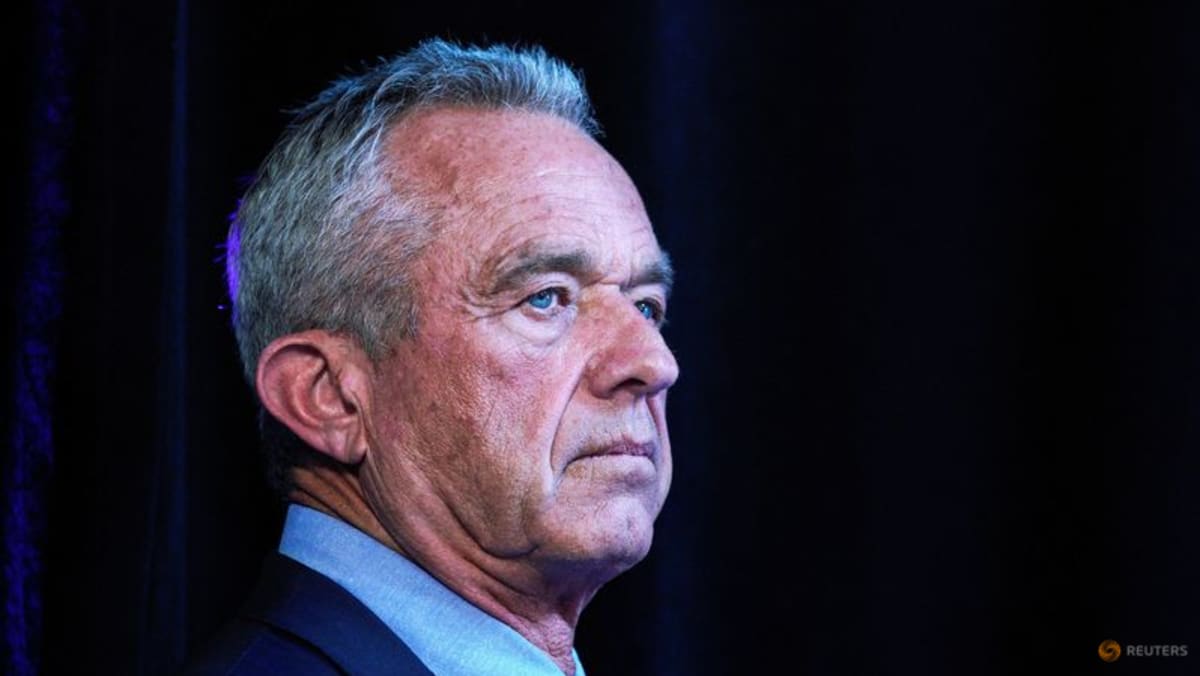

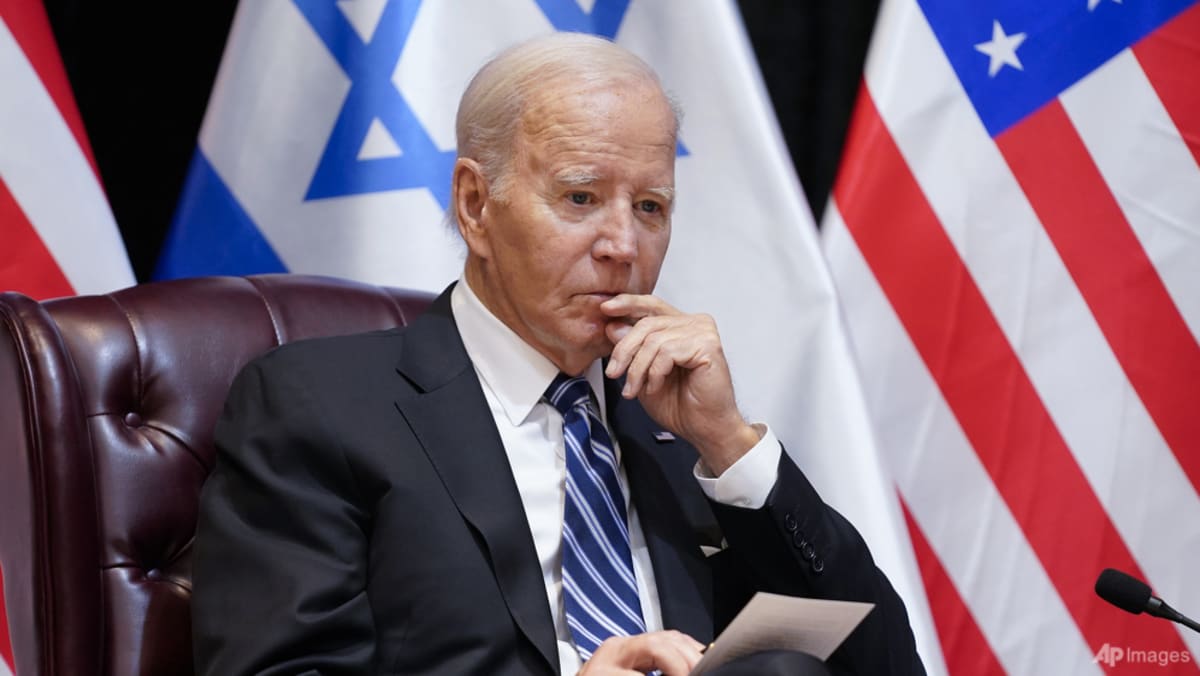
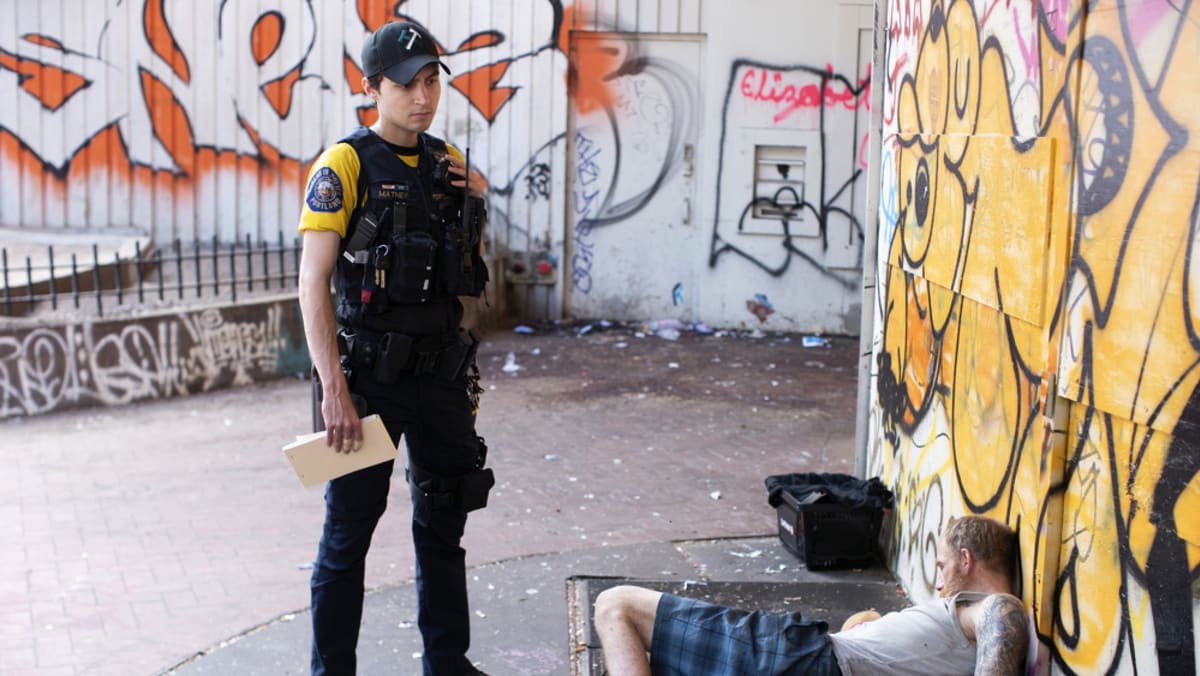
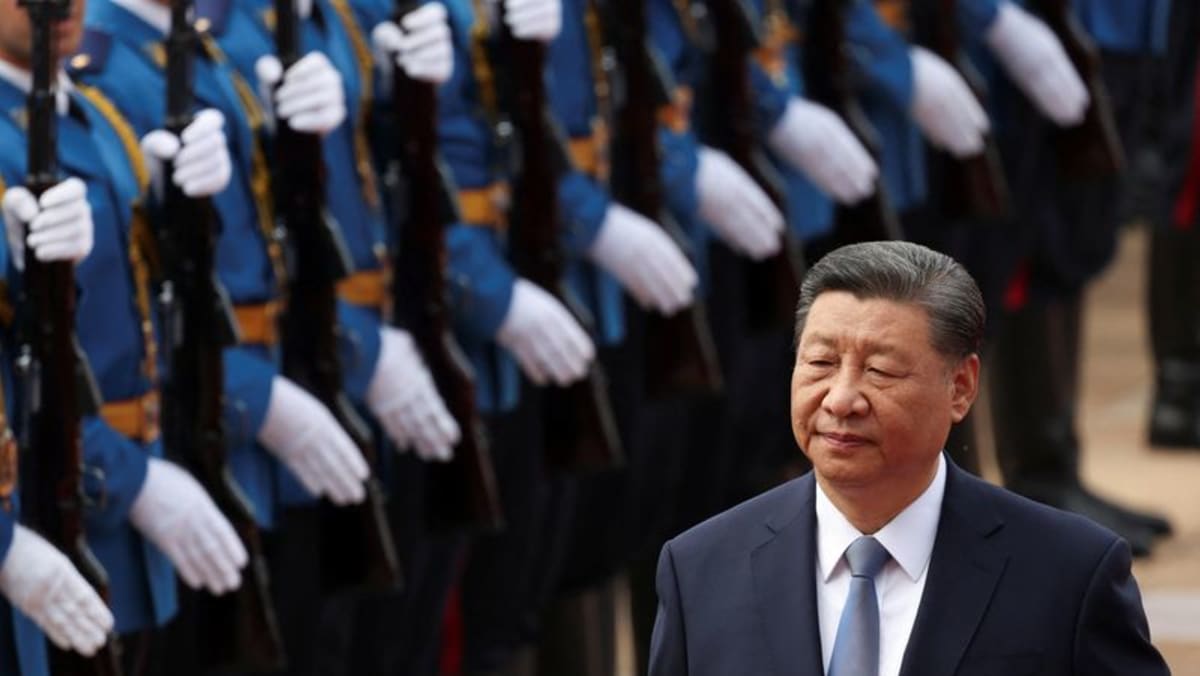





 English (US) ·
English (US) ·  Turkish (TR) ·
Turkish (TR) ·